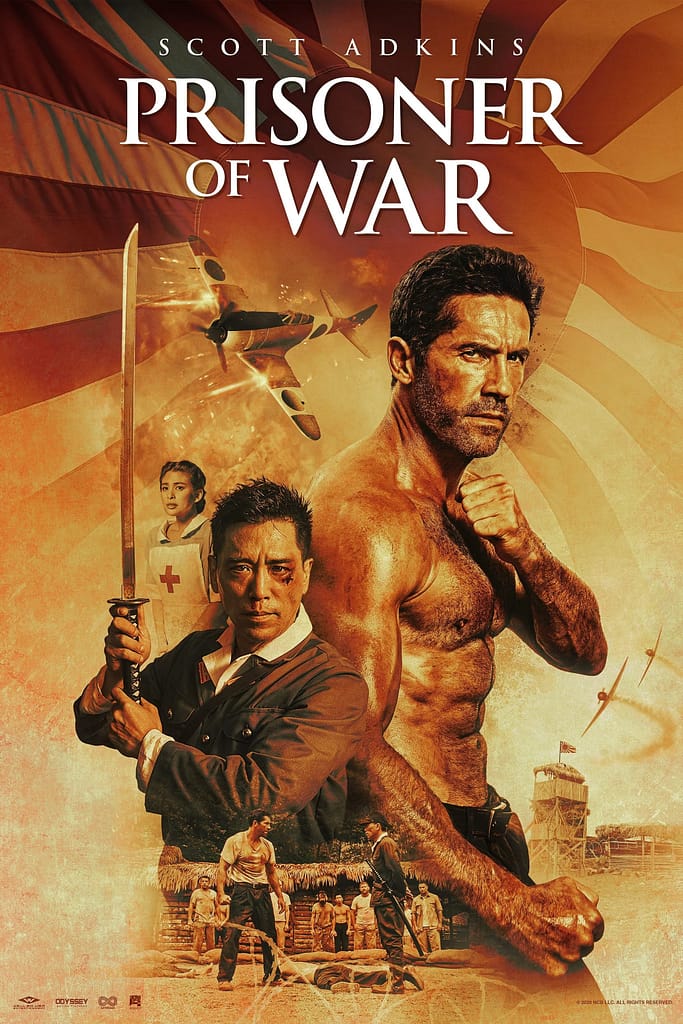My quick rating – 6.3/10. Prisoner of War feels like a movie that time-traveled straight out of Jean-Claude Van Damme’s 90s heyday with sweaty martial arts battles, one primary location, and a determined underdog fighter who refuses to stay down. Only this time it’s Scott Adkins running the show. He doesn’t just star; he also wrote and produced the film, clearly making this a passion project. The result? A brutal and entertaining martial arts war drama that plays to his strengths while occasionally showing its limitations.
The premise is straightforward: British RAF Wing Commander James Wright (Adkins) is captured by the Japanese during WWII and forced into violent hand-to-hand combat. His martial arts background—explained through years of training in Hong Kong—makes him both a target and a star attraction for the camp’s cruel general, played with chilling control by Peter Shinkoda. We have to take that with a grain of salt since, at that time, it was forbidden for Asian senseis to teach their respective martial arts to Westerners. The prison camp setting works in the film’s favor. It’s cost-effective, sure, but it also creates a tense and claustrophobic backdrop where each fight feels like it could be Wright’s last.
And let’s be clear, the fights deliver. Adkins opens the film with an adrenaline-pumping martial arts scene, and they keep coming. The choreography is crisp, grounded, and shot in a way that respects both the performers and the audience. None of that shaky-cam nonsense, just well-executed brawls that showcase Adkins at the top of his game. The film wisely avoids the video game progression trope (one boss fighter after another, each bigger and badder). Instead, when one soldier fails, the general throws three more at him, or simply beats him first. It feels more authentic to what might actually happen in a POW camp, though admittedly, it’s less flashy than the cinematic escalation I’ve been conditioned to expect.
Where the film stumbles is in its supporting characters. The other POWs are fine in their roles, but there’s little emotional investment in them. When the story shifts toward escape, it’s hard to care much about who makes it out alive aside from Adkins himself. That lack of attachment dulls the impact of what should have been a tense and emotional sequence.
Still, this is very much a Scott Adkins showcase, and on that front, it succeeds. He gets to flex both his martial arts and his dramatic chops, while Shinkoda gives him a formidable screen partner to play off. And while I can’t spoil anything, I will say this: the ending had me wondering one very practical thing—how exactly do they land that thing?
Prisoner of War surely does not reinvent the genre, but it blends martial arts action with wartime drama in a way that feels both nostalgic and fresh. If you’re part of the Adkins faithful, you’ll get exactly what you came for.







